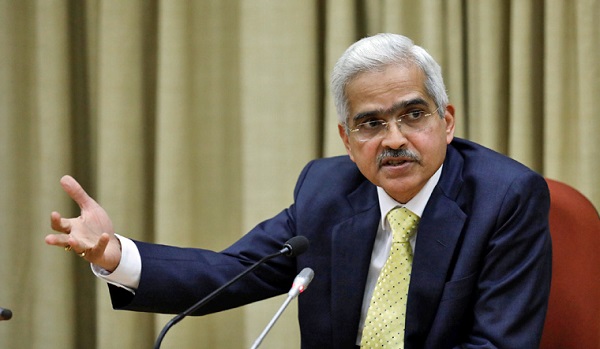RBI to consult with government
December 14, 2018 | Expert Insights

On Wednesday, the newly appointed RBI Governor Shaktikanta Das addressed that he would consult more closely with the government on policy issues and meet heads of state-run lenders within hours to address problems facing the banking sector.
Background
The origin of the Indian Banking Sector can be traced with the foundation of the Bank of Calcutta in 1786. Banking in India originated in the last decade of the 18th century with the foundation of the English Agency House in Bombay and Calcutta. It is the leading portion of the financial sector as it is responsible for more than 70% of the funds flowing through the financial sector in the country. The banking sector in India has a huge canvas of history, which covers the traditional banking practices from the time of Britishers to the reform periods of nationalisation and privatisation of banks and increasing numbers of foreign banks in India.
In the era of globalisation, the banking sector in India is rapidly changing since the 1990s due to technological innovations, financial liberalisation with the entry of new private and foreign banks and regulatory changes in the corporate sector. Currently, India is equipped with a fairly well-developed banking system with different classes of banks - public banks, private banks, foreign banks, corporate banks and regional rural banks.
Analysis
Marking a clear break with the policy approach of his predecessor, Shaktikanta Das struck a dovish tone on prospects for inflation and the economy, hinting that the Reserve Bank of India (RBI) might adopt a more growth-friendly monetary framework under his watch with help from the government.
On Tuesday, Das was appointed in place of Urjit Patel, who resigned abruptly after a clash with the government, which has pressured the bank to ease lending curbs and hand over part of its reserves to help fund India’s fiscal deficit. While offering assurances that he would defend the Reserve Bank of India’s (RBI) autonomy, Das said it also needed to take the government’s views on board.
Das, a seasoned bureaucrat who worked under two successive finance ministers from opposing political parties, said the banking sector would be his key focus and more measures were needed to revive lenders. “Government is not just a stakeholder, but ...runs the economy and manages major policy decisions,” he told a news conference. “So there has to be free, fair, objective and very frank discussions between the government and the RBI.”
India’s retail inflation rate for November on Wednesday undershot expectations, falling to a 17-month low of 2.33 %. While Das may lack his predecessor Patel’s deep macroeconomic expertise, his willingness to learn will help him to shape up for the new job quickly, two RBI officials who have worked with him said.
Das said it was heartening to note that inflation was in line with the central bank’s target and that the outlook looked benign. “Inflation targeting is an important function, which the RBI Act has mandated. It’s a mandatory part of RBI’s functioning. So that will remain very important,” Das said, adding that the Act also mentions the importance of economic growth.
Das, who has a reputation as a consensus-builder and is known for a preference towards pro-growth policies, declined to elaborate on what measures he had in mind. He noted the central bank’s role in inflation targeting, but added that “maintenance of the growth trajectory of the Indian economy is also important.”
Assessment
Our assessment is that the government is looking to secure tighter control over the Reserve Bank of India. This move comes after a drawn-out tussle between the RBI Board and the Ministry of Finance over the liquidity crunch in the banking and non-banking financial sector. We feel that with the focus on India’s growth trajectories, the RBI has kept its policy rates unchanged, citing a sharp fall in crude oil prices and food deflation.
We understand that the government is pushing the RBI to hand over more of its capital to the government and loosen curbs on some of the weakest banks, that would ensure continued lending. We also believe that it is crucial for the government to recapitalise the PSBs to tackle NPAs, cash reserves and systemic risks. This would bring credibility to the banking system which supports a larger and more diversified quality credit book.








Comments